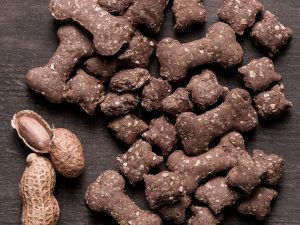 If you ever thought that humans had too many choices with regards to what they could eat, you wouldnt be surprised at the fact that even pets nowadays have way too many choices. The problem is not that wading through this many selections is plainly just difficult, but it is the fact that you want to give your pets the very best, and in doing so, you obviously want to avoid any food choices that will be detrimental to their health. However, with the many myths being thrown around with regards to pet food, it is safe to say that this is quite a difficult task. Not to worry! Below are a few of the worst pet food myths dispelled:
If you ever thought that humans had too many choices with regards to what they could eat, you wouldnt be surprised at the fact that even pets nowadays have way too many choices. The problem is not that wading through this many selections is plainly just difficult, but it is the fact that you want to give your pets the very best, and in doing so, you obviously want to avoid any food choices that will be detrimental to their health. However, with the many myths being thrown around with regards to pet food, it is safe to say that this is quite a difficult task. Not to worry! Below are a few of the worst pet food myths dispelled:

- The food at the veterinarian is always the best this is probably one of the most prevalent myths lying around. The thing is, this saying is not true nor false per se: the vet will have an assortment of pet food choices, whether that be dry food, wet food or even grain free cat food or dog food. The brands you will see will likely be highly reputed and well-known, but there is not much to say other than the fact that you can easily find these food varieties at your local supermarket, or at a pet store as always. Rather than saying the vet has the best choices, therefore, you could say that he or she is just stocking up on the more famous choices.
- Dry food can improve your pets oral hygiene this is one of the myths that even certain vets tend to still perpetuate. The answer, simply is, it is not going to do this. Kibble, whether it is delicious grain free dog food or otherwise, cannot do this. If you take into consideration how animals eat kibble, rather the opposite may be said: if you are relying on normal feed with high grain content, for example, the crushed kibble can get stuck in your pets teeth and this means the carbohydrates will eventually break down into sugars (and you can say hello to cavities next). Rather, strive to regularly brush your pets teeth and take them to the vet frequently.
- Life stages and related pet food you will obviously have seen pet food marketed towards various life stages of your pet. The question is, is that really beneficial to your pet? The answer is, not exactly. Whilst giving them stage appropriate food is certainly not unhealthy, not doing so does not equate to the fact that you are doing something wrong either. For example, kittens would prefer grain free diets in their stages more than grown cats, because biologically they are wired to have low carbs and high protein meals. But as long as you buy low carb food choices, it does not really matter whether that was a food marketed for their stage or not.